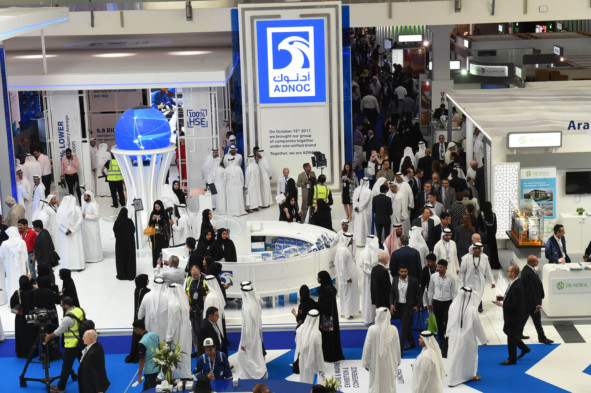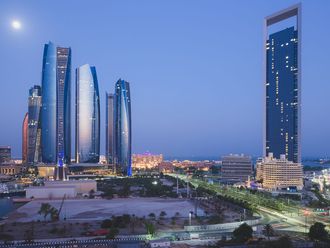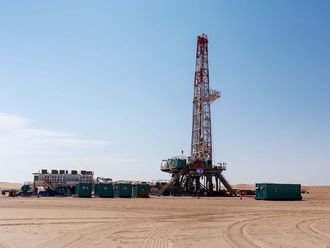
Abu Dhabi
Extension of Opec (Organisation of the Petroleum Exporting Countries) cuts and the IPO (initial public offering) of Adnoc Distribution dominated discussions at the Abu Dhabi International Petroleum Exhibition and Conference (Adipec) that came to an end on Thursday.
Adnoc Distribution, a subsidiary of Adnoc (Abu Dhabi National Oil Company) will sell at least ten per cent of its shares in an IPO to local as well as international investors.
However, Adnoc will continue to remain wholly-owned by Abu Dhabi government, its CEO Dr Sultan Ahmad Al Jaber said on the opening day of the energy conference, on Monday. “This marks a major milestone in our history and a significant step-change in our transformation. Importantly, it also signals a new chapter in the growth and development of the UAE’s capital markets,” he said.
Adnoc Distribution owns and operates 360 fuel service stations, including car washes and other car inspection services, as well as 235 Oasis-branded convenience stores, making it the largest operator of a retail network in the UAE.
Analysts have reacted positively to the development and it said it would boost diversification of the economy and support the growth in the post-oil era.
“The Adnoc IPO aims at securing enough funds from the sale to support the growth and contribution of the non-oil sector in UAE’s economy as part of the diversification of the UAE’s economy. The IPO money could also be used to accelerate the shift from dependence on the oil revenue to a post-oil era,” said Dr Mamdouh G Salameh, a London-based oil economist.
Adnoc also announced plans to increase production capacity of two important oilfields including Upper Zakum as well as Bab oilfields to meet the growing demand from its customers.
At Bab, production will go up from 420,000 barrels of oil per day to 450,000 barrels of oil per day by 2020 while production at Upper Zakum will go up to one million barrels per day by 2024.
Besides, plans are in place for Adnoc to also launch ‘Umm Lulu Crude Oil’, a new crude blend produced from its Umm Lulu and Sarb fields, operated by Adnoc Offshore.
Output cuts
Also in focus during the four-day event was extension of production cuts. Gulf energy ministers including from the UAE, Oman and Bahrain backed the extension of oil output cuts beyond March 2018, in order to boost oil prices.
UAE energy minister Suhail Al Mazroui said there is a potential for extension of Opec agreement beyond March 2018 but the period of extension is subject to discussion. “I haven’t heard anyone talking about not to extend the deal but the period of extension is subject to discussion. I am hopeful that we will reach an agreement that will lead to more stabilisation and investment in the industry,” he said earlier in the week.
Opec countries will meet on November 30 in Vienna to take a decision on the extension of the output cut agreement reached between the members of the group and non-Opec countries last year.
Oil producing countries are cutting output by 1.8 million barrels a day to prop up oil prices and rebalance the market. Oil prices have gone up since the agreement came into effect in January.
Oman oil minister Mohammad Al Rumhy also expressed confidence about the extension of the agreement till the end of 2018. “The agreement is valid till March and if there is an extension it could be till the end of 2018,” he told reporters.
Increase in investments
Meanwhile, Spencer Dale, BP’s Group Chief Economist, said on the sidelines of the event that the oil and gas industry needs a significant increase in investment over the coming years.
“Oil supply, as opposed to oil demand, will be the big game changer in the future as the world shifts away from the resource scarcity view,” he was quoted by WAM as saying, adding that there will be substantial consumption of oil for decades to come.
“If you look forward for the next 20-30 years, the combination of improving energy efficiency and technological progress means that supply will significantly outstrip demand as a result of increasing energy abundance,” Dale said.
Adipec was attended by top executives from Saudi Aramco, BP, China National Petroleum Corporation, Total, Pemex, among others apart from energy ministers from UAE, Lebanon, Pakistan, Egypt, Oman, Bahrain and Sudan.












